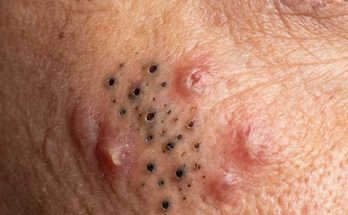When it comes to achieving a strong and well-defined physique, protein plays one of the most important roles in the process.
Whether you are lifting weights, performing endurance exercises, or simply trying to stay active and healthy, your body depends on protein to build, repair, and maintain muscle tissue.
Understanding how protein works within the body helps explain why it is such a vital nutrient for anyone pursuing strength and fitness goals.
Protein is made up of amino acids, often referred to as the building blocks of life. These amino acids are responsible for repairing tissues that break down during physical activity and for helping the body grow stronger over time. When you exercise, especially during resistance or weight training, small tears occur in your muscle fibers. It is through the process of repairing these tiny tears that your muscles grow larger and more resilient. Protein provides the raw materials your body needs to complete this repair process efficiently. The human body can produce some amino acids on its own, but nine of them are essential, meaning they must come from food sources. Foods such as eggs, chicken, fish, lean beef, soy, beans, and dairy products contain these essential amino acids. When you consume these foods, your body breaks down the protein into individual amino acids and distributes them where they are needed most—usually to muscles that have been worked during exercise. Without enough dietary protein, this repair process slows down, which can lead to fatigue, loss of strength, and reduced performance. Timing also plays an important role in how effectively protein supports muscle development. After a workout, muscles are more receptive to nutrients. Consuming a protein-rich snack or meal within about an hour of finishing exercise can significantly boost recovery. Many athletes and fitness enthusiasts choose options like grilled chicken, Greek yogurt, protein shakes, or cottage cheese after training sessions. These foods provide quick and efficient protein absorption, which helps jumpstart muscle repair and growth. However, it is not only post-workout protein that matters. Maintaining a steady intake of protein throughout the day ensures that your body always has a supply of amino acids available to support ongoing maintenance and growth. The amount of protein required varies depending on a person’s activity level, age, and fitness goals. People who engage in regular strength training or endurance sports usually need more protein than those with a sedentary lifestyle. A general guideline for active adults is to consume between 1.2 to 2.0 grams of protein per kilogram of body weight per day. While this range works well for most people, it is important to balance protein intake with other nutrients such as carbohydrates and healthy fats. Protein alone cannot build strong muscles; the body also needs sufficient energy and vitamins to perform well and recover properly. Another important factor in building strong muscles is the quality of the protein consumed. High-quality or complete proteins contain all the essential amino acids in the right proportions. Animal-based sources like eggs, fish, poultry, and dairy are considered complete proteins. However, plant-based eaters can also achieve a complete amino acid profile by combining different protein sources such as rice and beans or lentils and quinoa. The key is variety, which helps ensure that all essential amino acids are covered. While protein is essential for building strength, more is not always better. Consuming excessive amounts of protein does not necessarily lead to faster muscle growth. The body can only utilize a certain amount at a time, and any excess is either used as energy or stored as fat. Moderation and balance are key. It is also important to stay hydrated because the metabolism of protein requires water, and proper hydration supports overall muscle function and recovery. In addition to building muscle, protein helps preserve lean body mass during weight management efforts. When people cut calories to lose fat, the body may also break down muscle tissue for energy if protein intake is insufficient. Including adequate protein in the diet helps prevent this muscle loss, allowing individuals to maintain strength even as they reduce overall body fat. This preservation of muscle not only supports a toned appearance but also helps keep metabolism active, which makes it easier to maintain a healthy weight over time. For athletes, protein also contributes to improved endurance and reduced muscle soreness. Studies show that protein combined with carbohydrates after exercise can decrease muscle damage and speed up recovery. This means less discomfort and faster readiness for the next training session. Even for those who do not engage in competitive sports, having enough protein helps sustain daily energy levels, supports bone health, and enhances overall wellness. It is worth noting that different forms of protein offer different benefits. Whole food sources are ideal because they contain not only protein but also other important nutrients such as iron, calcium, and healthy fats. However, protein supplements like powders or bars can be convenient for people with busy lifestyles or specific dietary needs. Whey protein, derived from milk, is a popular choice due to its fast absorption rate and high amino acid content. Plant-based alternatives such as pea, rice, or hemp protein are also effective and suitable for those avoiding animal products. Choosing a product with minimal additives and natural ingredients is the best approach for maintaining both health and performance. The relationship between protein and muscle strength extends beyond physical appearance. Strong muscles contribute to better posture, joint stability, and metabolic health. They support daily activities such as lifting, walking, and carrying, making life more active and comfortable. For older adults, adequate protein intake becomes even more important because it helps slow the natural decline of muscle mass that occurs with age. Combining a protein-rich diet with regular resistance exercise can preserve independence and mobility well into later years. To make the most of protein’s benefits, consistency is key. Eating balanced meals that include a source of protein at breakfast, lunch, and dinner ensures the body has what it needs throughout the day. Pairing protein with whole grains, vegetables, and healthy fats creates meals that support long-term wellness. Over time, this consistent pattern of nourishment and movement leads to visible improvements in muscle tone, strength, and energy levels. In summary, protein is much more than a nutrient for athletes; it is a fundamental component of a strong, healthy body. It fuels muscle repair, promotes growth, preserves lean mass, and supports recovery. By choosing high-quality protein sources, eating balanced meals, and maintaining a regular exercise routine, anyone can experience the lasting benefits of stronger muscles and a more resilient body. Building strength is not about quick results but about giving your body the right tools—nutritionally and physically—to thrive. Protein, in its many forms, is one of the most powerful tools you can provide.



